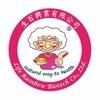
Content sponsored by:
Life Rainbow
Mycotoxins semiannual survey of mycotoxin in feed in 2021 Taiwan
Published: March 30, 2022
Source : Life Rainbow Biotech
In 2021 mycotoxins semiannual survey, Life Rainbow Biotech randomly collected 230 feed samples of raw materials and feed mills in farms and analyzed. The samples were tested for Aflatoxins (B1, B2, G1, and G2), Zearalenone, Fumonisins (B1, B2, and B3) and Deoxynivalenol (DON) by the ELISA Mycotoxin analysis kit.
Results:
230 feed samples collected, and 78% were contaminated with deoxynivalenol and 86% contaminated with Aflatoxins (table 1). The maximum concentrations of Zearalenone and Fumonisins were over the limit of quantification in this survey.

Data on corn meal, nursery, and pregnant diet were conducted to give the prevalence of mycotoxins. Out of total 230 samples, 53 samples from corn meal were analyzed that observed feed were contaminated 72% of deoxynivalenol, whereas the maximum of positive of Fumonisins exceeded the detection limit (table 2).

Of 36 samples of nursery feed collected, and analyzed that feed sample were contaminated with 100% Aflatoxins and 92% Deoxynivalenol (table 3).

The occurrence of mycotoxin in pregnant diet also analyzed and founded that Aflatoxins and Deoxynivalenol were most prevalent mycotoxins in pregnant diet, detected in 95% and 76% of samples respectively. (table 4).

Conclusion:
In 2021, the most prevalent mycotoxin exam in the feed samples in Taiwan was Aflatoxins and deoxynivalenol, 86% and 78% respectively. Aflatoxins increased from 72% to 86% in the first and second half of the year. Feed contain mycotoxins and environmental stress factors will cause negative effects on animal immunity which increases the risk of pathogen infection and affects metabolic disorder, causing many chronic symptoms and interfering with vaccine efficacy. Hence, detoxifying mycotoxins in feed is an important issue needed to be concerned and take actions. The use of Toxi-free PLUS® that supports the production is recommended for long living animals. Life Rainbow Biotech has researched mycotoxins for 16 years and developed an enzyme-type mycotoxin degrading product: Toxi-Free PLUS®. Adding Toxi-FreePLUS® to the feed use as a daily care product, can protect the farmed animals and reduce the damage caused by the mycotoxin made the animal live more comfortably and increase the farmer's profits.
Related topics:
Recommend
Comment
Share

Would you like to discuss another topic? Create a new post to engage with experts in the community.



